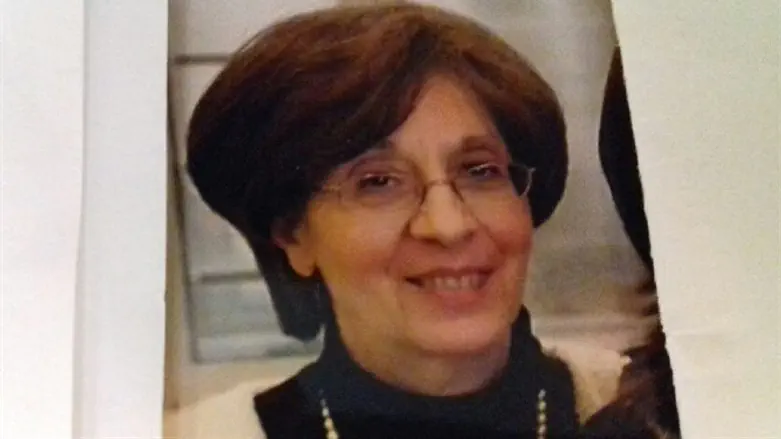
(JNS) On both sides of the English Channel, the failure to grasp the nettle of Islamist extremism and the frightening consequences of that failure are sounding an urgent alarm for the whole of Western society.
Last weekend, a British Conservative Member of Parliament, Sir David Amess, was stabbed to death in his regular constituency meeting. The man accused of murdering the MP, Ali Harbi Ali, is a British man of Somalian descent who had been referred to Britain’s anti-extremism program but had not been considered a threat.
Although the police are treating this as an Islamist terror attack, virtually all the anguished public debate since the murder has been instead about the culture of incivility on social media and the resulting threats to MPs from violent people of every stripe. Islamic extremism has been all but ignored.
This surreal reaction reflects a perverse development in British political culture. This is an exaggeration of the risk from far-right terrorism while the much greater threat from Islamist terrorism, which accounts for more than 90 percent of the 43,000 suspects on MI5’s watch list and the overwhelming majority of recent terror convictions, has been underplayed.
A report by the Henry Jackson Society think tank says that since 2015, when a Labour MP, Jo Cox, was murdered by a white supremacist, referrals of Islamist extremists to the anti-extremism program have been down by 80 percent while right-wing referrals have been rising.
Yet as an intelligence source told The Telegraph, right-wing extremists “do not present the same risk as Islamists by any distance, by a factor of four or five to one. More time has been spent than appropriate on right-wing extremism and not Islamism.”
Many British Jews also have their heads firmly in the sand. Surveys show that Muslims are three to four times more likely to hold anti-Semitic views, and from anecdotal evidence are disproportionately involved in anti-Jewish attacks. Yet the Jewish community leadership smears those who call attention to this as “Islamophobes.”
In France, this situation is far worse. France has a largely unassimilated, violent and anti-Semitic Muslim community that presents a deep threat to Jews and non-Jews alike. Islamist terrorist attacks there over the past six years have left more than 250 killed and 900 wounded.
There has been a steady stream of Islamist murders and other violence committed against Jews, a situation worsened by the reluctance of the French authorities to deal appropriately with anti-Semitic attacks.
The last of many such last straws for French Jews was the court ruling in May that a Muslim who murdered Sarah Halimi, an elderly Jewish teacher in 2017—by beating and pushing her out of the window of her Paris flat after a series of anti-Jewish comments and shouting Allahu Akhbar!—wasn’t responsible for his actions because he had been high on marijuana.
Many French Jews have been moving to Israel, deciding there’s no future for the Jewish community in France and even that Europe as a whole is finished. That fear is also gripping wider French society, and accounts for the extraordinary rise of Éric Zemmour.
Zemmour is a nationalist provocateur who, although he hasn’t even declared himself a candidate for the French presidential election next year, now dominates France’s political debate. A poll last week put him on 17 percent, ahead of all other rivals to President Emmanuel Macron.

Most American Jews, having bought into the intersectional ideologies fueling this onslaught to some extent at least, are incapable of acknowledging the threat these pose to Jewish life. Considered more extreme even than Marine Le Pen, who has made strenuous efforts to ditch the anti-Jewish, anti-gay profile of her father Jean-Marie, Zemmour is now leaving her trampled in his wake while conventional right-wing politicians are nowhere.
Considered more extreme even than Marine Le Pen, who has made strenuous efforts to ditch the anti-Jewish, anti-gay profile of her father Jean-Marie, Zemmour is now leaving her trampled in his wake while conventional right-wing politicians are nowhere.
Zemmour, the Jewish son of Algerian immigrants, calls himself a Gaullist and says that unless immigration is checked, France will become an Islamic republic.
Unlike former U.S. President Donald Trump, with whom he is often compared, Zemmour is both highly intelligent and intellectual. But just like Trump, he has bust the political scene wide open.
This is because he has put on the table the key issue that no other politicians dare discuss: French national identity, and whether France will survive in the face of Islamization.
Zemmour says it won’t. Many agree, which is why he’s packing them into his rallies across France with fans in “Zemmour 2022” T-shirts chanting: “Zemmour! Président!”
He has a record, however, of incendiary comments. These include defending the collaborationist Vichy regime over its treatment of Jews; suggesting that the French anti-Semitism victim Capt. Alfred Dreyfus may not have been wrongly convicted of treason; and claiming that Jewish victims of terrorist attacks in France who were buried in Israel were therefore “foreigners.”
Some say he makes such comments because he’s a rabble-rousing racist. Others think he’s judged correctly that such extreme views reflect strains of French society that can’t be divorced from the Gaullist mainstream. But the core of his message—that France is well on the way to becoming a state violently riven, if not actually ruled, by militant Islam—resonates with so many because it is as vital as it is suppressed.
Zemmour’s utterances are therefore a combination of the true but politically unsayable with the widely offensive and unacceptable. He is reclaiming the political center ground from a deadening consensus that has turned language on its head, mounted an all-out onslaught on fundamental Western values and enforced Soviet-style attempts to suppress dissent. But he also says things that are beyond the pale.
Like the ascendancy of Trump, Zemmour’s rise is a warning of how the West’s current culture of political denial is likely to develop.
In Britain, Western Europe and America, those who dissent from liberal dogma hostile to fundamental Western values, the nation-state or the existence of Israel are intimidated, smeared and canceled.
Britain, where an epic revolt by the people against liberal universalism delivered Brexit and thus restored the United Kingdom as an independent sovereign nation, is nevertheless run by a political class that continues to refuse even to identify the Islamic holy war being waged against it. Britain therefore cannot defend itself against that attack.
America is well on the way to destroying itself through the hatred of its identity and values with which it has indoctrinated so many of its citizens. The resulting moral and cultural vacuum is being exploited by an alliance between radical Islamists and black, anti-white extremists intent on bringing down America and the West.
Most American Jews, having bought into the intersectional ideologies fueling this onslaught to some extent at least, are incapable of acknowledging the threat these pose to Jewish life.
In Britain, Jewish community leaders promote the fantasy that if they line up alongside intersectionality’s purported “victims,” the Jews will be afforded protection.
The West is like the apocryphal frog being uncomprehendingly boiled in the pot. In Britain, the pot is being heated very slowly; in France, it has reached boiling point; and in America, it has boiled over with many Jews actually helping turn up the heat.
When the whole of mainstream politics subscribes to self-destructive thinking, it’s inevitable that leaders will emerge who are themselves in some ways extreme and unpalatable, but who nevertheless offer the only chance of extinguishing the heat under the pot.
Various thinkers over the years have recognized a conundrum. This is that, if a liberal society finds itself required to use illiberal means to defend its liberal values, it will refuse to do so—and thus inevitably constitutes its own death warrant.
Will this be the case in the West? Given the significant jump in immigration to Israel this year from France and Britain, it seems that an increasing number of Diaspora Jews aren’t waiting to find out.
Melanie Phillips, a British journalist, broadcaster and author, writes a weekly column for JNS. Currently a columnist for “The Times of London,” her personal and political memoir, “Guardian Angel,” has been published by Bombardier, which also published her first novel, “The Legacy.” Go to melaniephillips.substack.com to access her work.
